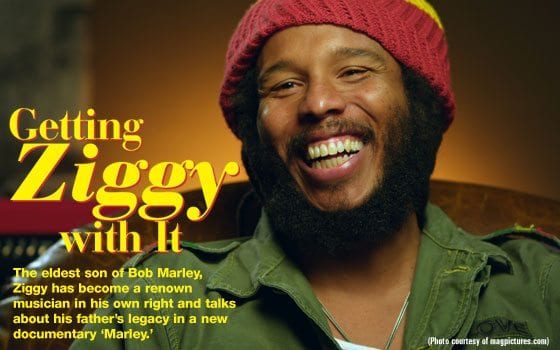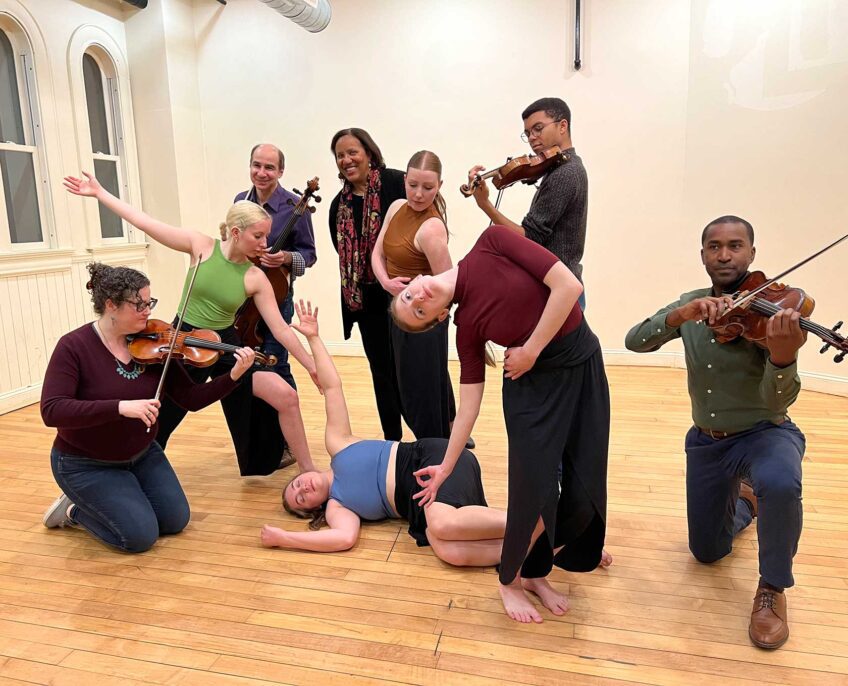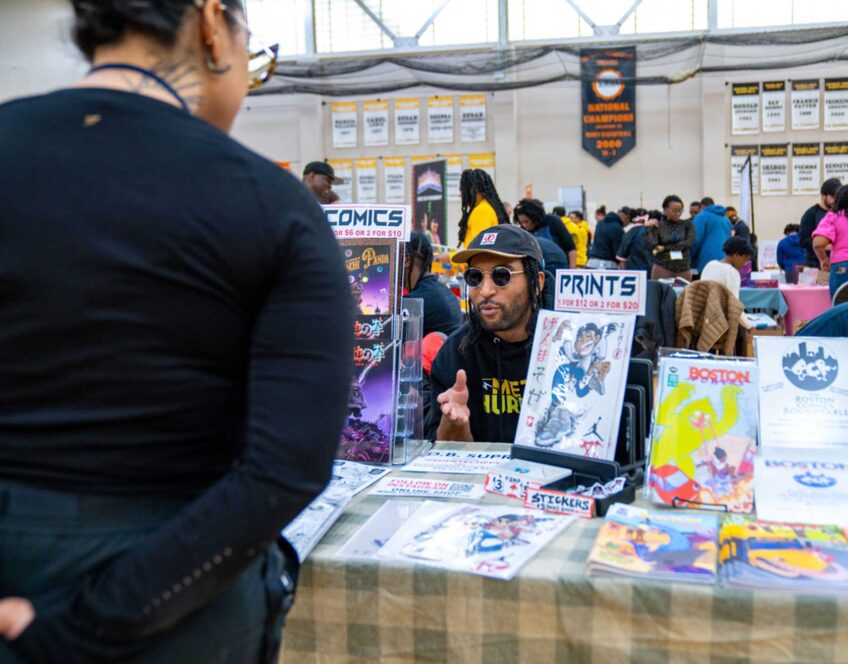
David Nesta “Ziggy” Marley was born in Trenchtown, Jamaica, on October 17, 1968 to Bob and Rita Marley. A five-time Grammy-winning musician, actor, artist, activist and humanitarian, Ziggy has enjoyed a prominent presence on the public stage for more than a quarter-century.
Ziggy first sat in on recording sessions at the age of 10 with his father’s band, the legendary Bob Marley and the Wailers. Later, he joined with his sisters Sharon and Cedella and brother Stephen to form Ziggy Marley and The Melody Makers, which enabled him to craft his own soulful sound blending blues, RandB, hip hop and roots reggae. The Melody Makers earned their first Grammy (Best Reggae Recording) for their third album “Conscious Party” (1988), produced by Talking Heads Chris Frantz and Tina Weymouth, which included the hit songs “Tomorrow People” and “Tumbling Down.”
Subsequent albums included the Grammy-winning “One Bright Day” (1989), “Jamekya”(1991), “Joy and Blues” (1993), “Free Like We Want 2 B” (1995), Grammy-winning “Fallen is Babylon” (1997), “Spirit of Music” (1999) and “Ziggy Marley and The Melody Makers Live, Vol. 1” (2000), featuring some of their biggest hits, as well as a cover of Bob Marley’s “Could You Be Loved.”
While selling millions of records and selling out numerous concerts, Ziggy Marley and The Melody Makers never lost sight of their foundations in faith, fellowship and family.
Involved with a breadth of charities, Marley leads his own, URGE (Unlimited Resources Giving Enlightenment), a nonprofit organization that benefits efforts in Jamaica, Ethiopia and other developing nations. The charity’s missions range from building new schools to operating health clinics to supporting charities like Mary’s Child, a center for abused and neglected girls.
The title of his latest album, “Wild and Free,” is a little ironic, given his time-consuming commitments to family, philanthropy, songwriting, producing, studio work and touring. Ziggy also continues to head Tuff Gong Worldwide in honor of his father’s own music label Tuff Gong Records, working on the re-launch of the official Bob Marley website and an exhibit at the Grammy Museum in L.A.
I loved the movie “Marley.” It taught me so much I never knew about your father. Why did you decide to make it?
It came from a personal need for me, as Bob’s eldest son, to be a part of a film about my father. There have been a lot of other projects presuming to tell his story, but I thought it was time for one coming from his family, not from some third party claiming to be the authority on Bob Marley or reggae. The only thing that would be me more authentic than this would be Bob himself.
It’s definitely a very rich and spiritual film which humanized him in ways I never expected.
Jah, mon, we want people to feel that human connection, that emotional connection, that real connection, and Kevin [director Kevin Macdonald] did a great job of achieving that.
How do you think your father’s music has made a lasting effect on the world?
My father’s music gives hope to people and also inspires them to break the bonds of injustice and to be positive in life. I’ve seen that everywhere I go, especially in poor countries and poor neighborhoods. Even in speaking to actual freedom fighters from South Africa to Ethiopia, they always told me how influential the music was in their struggles.
What is the most significant life lesson you learned from your father?
Everything I’ve taken away from my father has been significant. So, I can’t say that any one lesson is the most significant. By being around him, I learned that there is a purpose in life, and that if we are inspired to help people, we should do it. And that there is a spiritual side to life as well as to music and that we are here for a bigger purpose than just ourselves. Those are some very significant ideas of my father’s that I have carried with me all my life and still cherish to this day.
What was it like growing up as the son of such a famous icon?
I’d divide it into two periods. Bob wasn’t as big an icon as he later became after he died. When he was alive, he just acted like what he was, a musician that people loved. He never behaved in any superficial or iconic way. He was just being himself. There wasn’t anything special or different about our lives. In Jamaica, everybody’s the same. The second period began after he passed away, when his iconic stature grew and everywhere we went people would show us a lot of love as Bob Marley’s kids. That was very positive for us.
How long did you live in Trenchtown?
I was born in Trenchtown and spent my early years there as a toddler. When my dad made more money, we moved out of the ghetto to a better neighborhood with better schools. Eventually, he purchased the home on Hope Road from [Island Records producer] Chris Blackwell, which also became his headquarters.
Do you enjoy listening to your own CDs?
Umm… not really.
Your dad gave you the nickname, Ziggy, meaning Marijuana. And you are an advocate for the legalization of pot. Why is that, because you consider it a sacred herb or a recreational drug?
My interest in it is actually a much wider spectrum than merely smoking marijuana. It’s all about the use of hemp for clothing, for building materials, and as a biofuel, as an environmental alternative in the industrial sense. Plus, the seeds have nutritional value.
That’s what I’m interested in bringing to light, because everybody just talks about the smoking, the smoking, the smoking. I’m trying to get across to people that if we in this world are serious about the green revolution and saving the planet, then this plant has to be a part of the discussion, because it is the most suitable natural resource with thousands of beneficial uses.
What is your favorite dish to cook?
Right now, just oatmeal.
If you could have one wish instantly granted, what would that be for?
Peace in the world.
What is your favorite charity?
I’m into anything that really helps children.
What key quality do you believe all successful people share?
Successful people… [Ponders the question] That’s kind of a trick question, because it depends on how one defines success. Success means different things to different people. To me, the greatest quality of successful human beings is the ability to love.
How did your first big heartbreak impact who you are as a person?
It makes you stronger. Yeah, it makes you stronger.
What was the best business decision you ever made, and what was the worst?
My best business decision was to be independent as a musician and artist. My worst was compromising on certain aspects of a deal for the sake of other members of my group when I shouldn’t have, because I was right in the end.
How do you want to be remembered?
To tell you the truth, I don’t know. I don’t think about it. [Laughs]




![Banner [Virtual] Art Gallery](https://baystatebanner.com/wp-content/uploads/2024/04/NJ-H_1-713x848.jpg)

